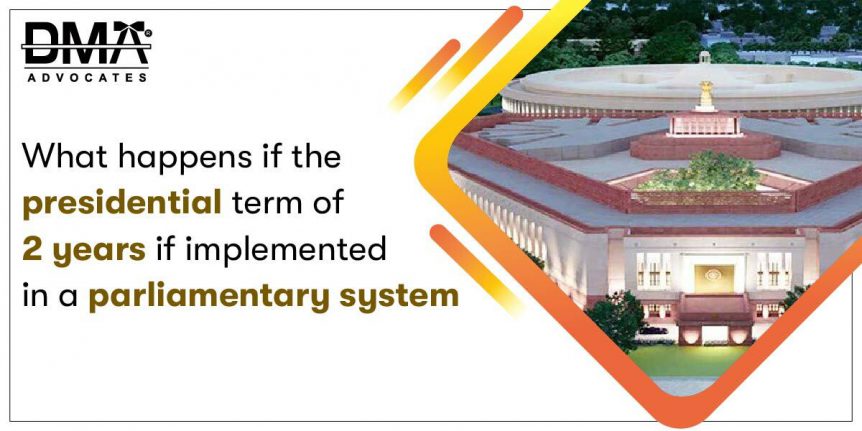In India, there is no restriction as to no. of tenures for Prime Minister of India (PMoI). Our country has adopted the Westminster form of parliamentary democracy. The Prime Minister may hold office as many times as he/her elected by the majority of the members of Lokshaba. The Prime Minister may hold office as many times as he/her elected by the majority of the members of Lokshaba.
If the presidential term of 2 years if implemented in a parliamentary system like in the US (22nd Amendment of United States) then the following are the changes that can be seen:
Term limits will play a stabilizing role by levelling the political playing field and have been shown to facilitate democratic development.
As citizen/voter of India and also a human being we may prefer our candidate gains and holds power forever; but, given the possibility that our candidate might be permanently excluded instead, the risk-averse voter prefers a system where leadership change can occur in the future.
Term limits can render violence unnecessary by ensuring that newcomers have a real chance at challenging incumbents electorally. Because as seen in Africa and US term limits guarantee leadership turnover, newcomers are more inclined to commit the high material and opportunity costs of entering the political arena.
Constitutionally term limits will provide a mechanism for holding leaders accountable, reduces the tendency toward corruption by ensuring political turnover, and allow new generations to compete for political office and choose new leaders.
Another advantage that can be enjoyed when there are no term limits is the ability to stack key institutions and bureaucracies with supporters, developing patronage networks that trade material benefits for political loyalty. Term limits make it harder to established, entrenched patronage networks, and arguably make them less valuable.
Theoretically, term limits will also incentivize leaders to develop equitable, effective institutions, with the knowledge that they will be subject to them once they leave the office.
Changing constitutions and eliminating term limits reduces people’s confidence in their institutions, weakens overall governance, and serves only the interests of the person or party in power. In many Democratic Countries still term limit for Prime Minister’s office is not present. Term Limits is a democratic fundamental right; without term limits, the democratic country would feel like a dictatorship.
There is compelling evidence to suggest that leadership turnover has a positive impact on democratic development. Nigeria’s recent elections saw an opposition candidate, Muhammadu Buhari; win a free and fair election for the first time this year. Nigeria too experienced a crisis of the third termism in its not-so-distant past. The court halted president Olusegun Obasanjo’s attempt to amend the country’s constitution in 2006. The Nigerian court’s ruling in favour of the constitution established a tradition of leadership turnover, the promising results of which are apparent today.
Conclusion
The observers generally link respect for term limits with high democratic quality. Further, supporters of term limits insist that fresh blood and new ideas should have access to the highest office of the land. More critical observers suggest that the absence of term limits allows for an excessive concentration of power over time, arguably increasing the opportunities for corruption and opening the way for other restrictions on democracy. And this is what has been going on in India since Independence where corruption doesn’t seem to stop. No law or provision doesn’t stop the PM to manipulate his fellow ministers since he has established loyalty because the term limits were not established. No new leaders were elected to make any laws and take away the real meaning of democracy.
We hope you all get some knowledge from these articles, please subscribe and share to your friends. If you need any kind of legal support our DMA lawyers team will help you. Feel free to contact us.


